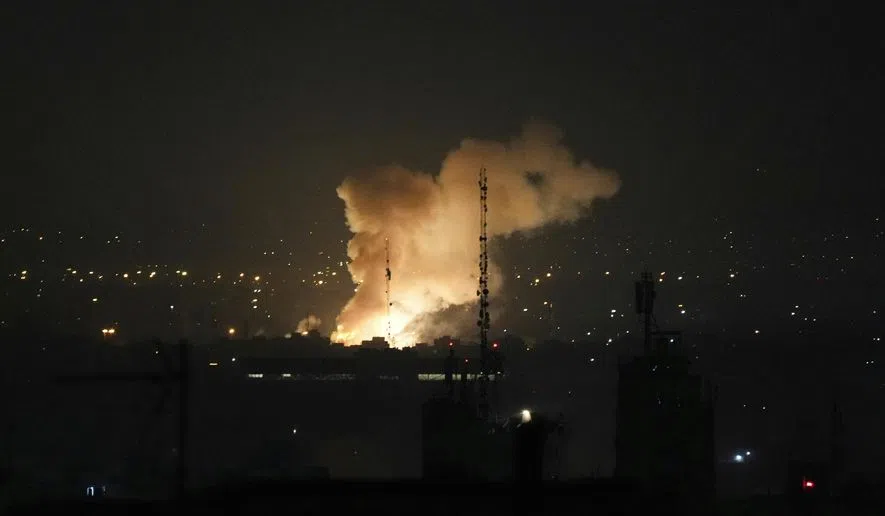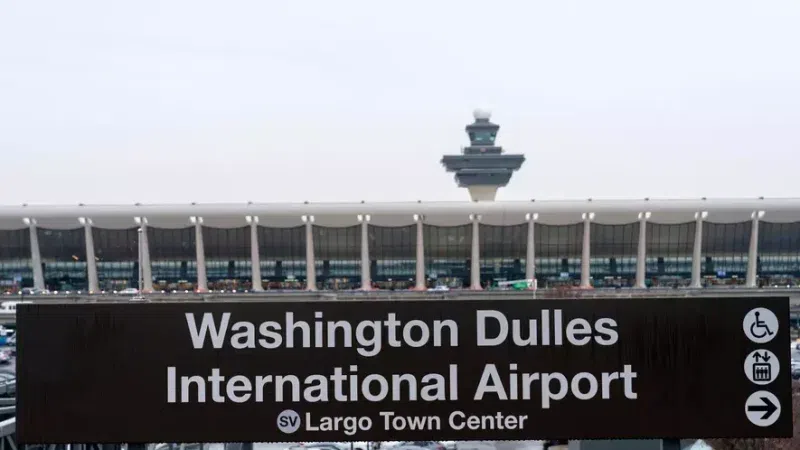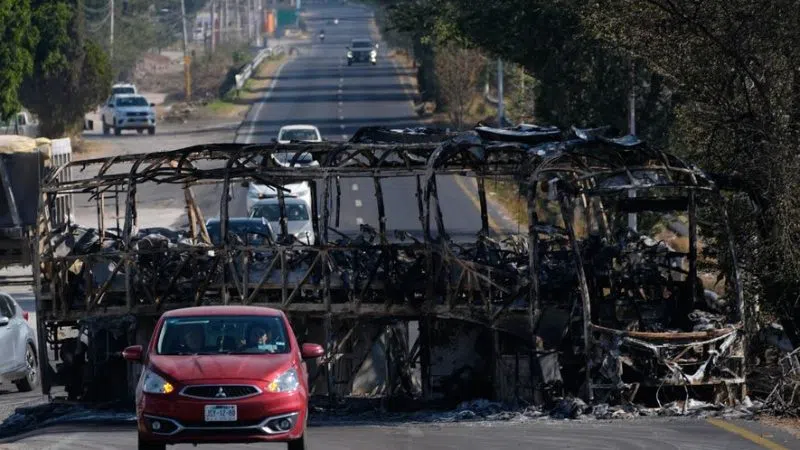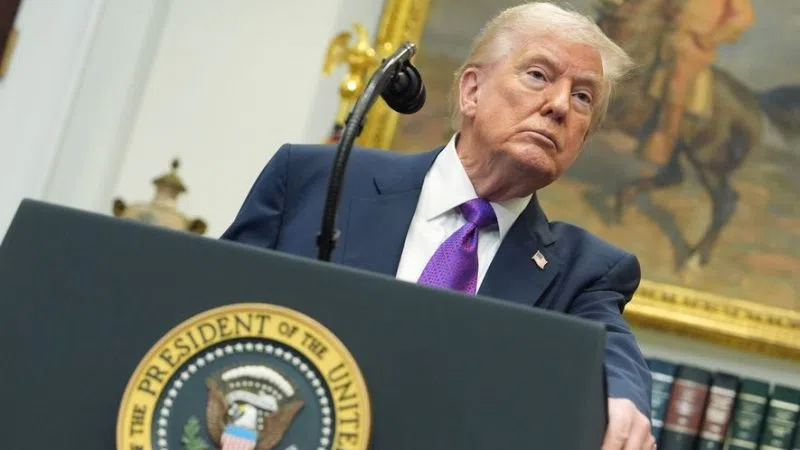Attacks Undercut U.S. Efforts to Strike Nuclear Deal With Tehran

Ben Wolfgang | June 13, 2025
(The Washington Times) — Israel launched preemptive airstrikes on Iran early on Friday while Tehran reportedly scrambled fighter jets and the Trump administration warned Iran against targeting U.S. troops in response.
Israeli officials warned their citizens of likely retaliation in the hours to come amid fears that the two Middle East powers were on the precipice of all-out war. The Israeli armed forces described the strikes as the “first stage” of an ongoing operation, strongly suggesting that more military action is forthcoming.
Israeli Prime Minister Benjamin Netanyahu cast the Israeli operation as a historic step to prevent a genocide of the Jewish people that could resemble the holocaust carried out by Nazi Germany more than 80 years ago.
“For decades, the tyrants in Tehran have brazenly, openly, called for Israel’s destruction. They’ve backed up their genocidal rhetoric with a program to develop nuclear weapons,” Mr. Netanyahu said in a video address. “This is a clear and present danger to Israel’s very survival.”
“Eighty years ago, the Jewish people were the victims of a holocaust perpetrated by the Nazi regime. Today, the Jewish state refuses to be a victim of a nuclear holocaust perpetrated by the Iranian regime,” he said.
The strikes targeted Tehran, Iran’s capital, and the Islamic Republic’s state media acknowledged the attacks.
There was little immediate detail on the full scope and specific targets of the strikes, but Mr. Netanyahu said that the strikes targeted Iran’s main nuclear enrichment facility in the city of Natanz. The Israeli leader also said his country struck Iran’s “leading nuclear scientists” and targeted facilities associated with Iran’s ballistic missile program.
Those statements seem to explain reports of explosions in areas of Iran with no known nuclear facilities nearby. Hossein Salami, the commander of Iran’s Revolutionary Guard, was killed in the strikes, Iranian state media said Friday.
Israel also declared a state of emergency nationwide and closed its airspace to civilian aircraft.
The Israeli operation comes after days of growing speculation that Israel would target sites associated with Iran’s nuclear program, despite President Trump’s calls that Jerusalem hold off on such attacks in favor of a U.S.-led diplomatic effort to strike a deal with Iran.
In a statement Thursday evening, Secretary of State Marco Rubio warned Tehran against targeting U.S. personnel in the Middle East in response to the Israeli moves.
“Tonight, Israel took unilateral action against Iran. We are not involved in strikes against Iran and our top priority is protecting American forces in the region,” Mr. Rubio said.
“Israel advised us that they believe this action was necessary for its self-defense. President Trump and the administration have taken all necessary steps to protect our forces and remain in close contact with our regional partners. Let me be clear: Iran should not target U.S. interests or personnel,” he said.
The IDF said the operation is a “preemptive, precise, combined offensive to strike Iran’s nuclear program” and said that the Israeli Air Force targeted multiple targets across Iran.
“Dozens of IAF jets completed the first stage that included strikes on dozens of military targets, including nuclear targets in different areas of Iran,” the IDF said in a social media post.
“Today, Iran is closer than ever to obtaining a nuclear weapon. Weapons of mass destruction in the hands of the Iranian regime are an existential threat to the State of Israel and to the wider world,” the Israeli military said. “The State of Israel has no choice but to fulfill the obligation to act in defense of its citizens and will continue to do so everywhere it is required to do so, as we have done in the past.”
The U.S. has taken steps over the past several days to move some diplomatic personnel out of the Middle East and has authorized the voluntary departure of service members’ families from the region.
Those steps were a clear indication that the Pentagon expected a renewed wave of violence across the Middle East, which has been engulfed by conflict since the Oct. 7, 2023, Hamas attack on Israel.
That assault by Hamas, a Gaza Strip-based Palestinian terrorist organization that is financially and logistically backed by Iran, sparked a major Israeli military response, which has targeted Hamas and also other arms of Iran’s so-called “axis of resistance” in the region, such as Lebanon’s Hezbollah militia and Yemen’s Houthi rebels.
Hours before the Israeli strikes, Mr. Trump acknowledged that such attacks may be on the horizon.
“I don’t want to say it’s imminent, but it looks like it’s something that could very well happen,” Mr. Trump said at a bill-signing event Thursday in the East Room of the White House.
Mr. Trump said he’d rather avoid conflict with Iran, but “they’re going to have to be willing to give us some things that they’re not willing to give us right now.”
“It’s very simple, not complicated: Iran cannot have a nuclear weapon,” he said. “Other than that, I want them to be successful. We’ll help them be successful. We’ll trade with them, we’ll do whatever is necessary.”
The sixth round of nuclear talks between the U.S. and Iran were set to take place Sunday in Oman. The Middle East country has been mediating the negotiations.
It’s unclear whether such negotiations will go forward in light of the Israeli strikes.
Some U.S. officials expressed grave concern over the strikes.
Sen. Jack Reed, Rhode Island Democrat and ranking member of the Senate Armed Services Committee, urged both Israel and Iran to “show immediate restraint.”
“Israel’s alarming decision to launch airstrikes on Iran is a reckless escalation that risks igniting regional violence. These strikes threaten not only the lives of innocent civilians but the stability of the entire Middle East and the safety of American citizens and forces,” he said in a statement. “While tensions between Israel and Iran are real and complex, military aggression of this scale is never the answer.”
Hours before the Israeli strikes, the United Nations’ nuclear watchdog declared that Iran is not following its atomic obligations, calling on the Islamic Republic to do all it can to provide transparency for its enrichment program.
In a resolution issued Thursday, the U.N.’s International Atomic Energy Agency found that Iran had failed to offer sufficient transparency concerning an investigation into uranium traces found at several locations where Iran has not disclosed an enrichment site. Some Western leaders say the uranium traces point to Iran having secret nuclear weapons facilities.
Iran’s uranium enrichment has been the key sticking point thus far in negotiations between Washington and Tehran.
Analysts generally agree that right now, Iran’s uranium enrichment efforts are at a point where it could make enough weapons-grade uranium for a nuclear weapon within days. The construction of a nuclear bomb itself would take significantly longer.
Iran insists that it be allowed to continue enriching uranium for peaceful purposes, such as power generation, but the Trump administration has said recently it would not allow any such enrichment to take place on Iranian soil.
The Israeli strikes and any Iranian retaliation would mark the third such back-and-forth between the two rivals in a little over a year. Before the most recent attacks, Israel had twice carried out direct military strikes on Iran since the Oct. 7, 2023, Hamas attacks on Israel.
Iran had launched its own drone-and-missile attacks against Israel, but those assaults were unsuccessful thanks to Israeli air defenses aided by the U.S. military.























